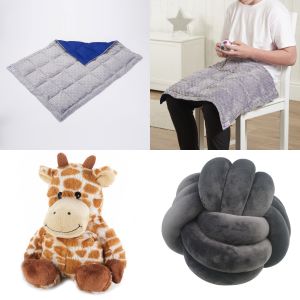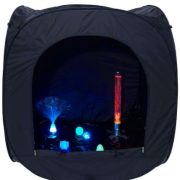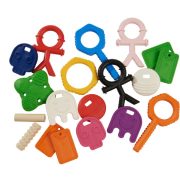Get exclusive deals you won't find anywhere else straight to your inbox.

Sensory Regulation For Teenagers
Sensory regulation is the ability to manage and respond appropriately to sensory input from our environment. Inputs could be from things we see, hear, touch, taste or smell.
For teenagers, who are undergoing significant physical, emotional, and social changes, sensory regulation is particularly important. You often find they don’t want to stand out amongst their peers so finding discreet sensory solutions is really important.
Here are some tips for sensory regulation for teenagers:
- Identify triggers: Help teenagers identify what sensory stimuli they find overwhelming, such as bright lights, loud noises, or certain textures. Can you reduce or eliminate exposure to these stimuli?
- Create a calm environment: Encourage teenagers to create a calm and comfortable environment for themselves. This could include using ear defenders, dimming the lights, or a quiet corner with a bubble tube.
- Weight and Compression can be very effective for sensory seekers. A weighted blanket can help at night to calm and weighted clothing such as a weighted hoody is a discreet way of using weight during the day. Some people prefer compression to weight so a compression shirt is a solution that can be worn discreetly all day
- Exercise: Engaging in physical activity can be helpful for sensory regulation. Encourage teenagers to participate in activities that they enjoy, such as dancing, sports, or yoga. Other useful activities for sensory regulation are heavy work such as mowing the lawn and doing the laundry. This has the added benefit of teaching life skills and giving teens some responsibility.
- Practice breathing techniques: Deep breathing and other relaxation techniques can be helpful for regulating the sensory system. Encourage teenagers to practice these techniques regularly.
- Fidgets & Sensory Chews can be an easy way to relieve stress and anxiety when out and about. Let teenagers choose what works best for them. Other things such as chewing gum can also help regulate.
- Seek professional help: If a teenager is struggling with sensory regulation, it may be helpful to seek the assistance of a professional, such as an occupational therapist, who can provide personalised guidance and support.
Sensory Direct stock a range of products and packs to help teenagers self-regulate including the Teenager's Sensory Soft & Snuggly Sofa Pack and Teenager's Be Confident Out & About Pack.
 Good to know
Good to know
Remember, each teenager is unique and may have different sensory needs. It is important to work with them to identify what works best for them and provide a supportive environment that allows them to thrive.









